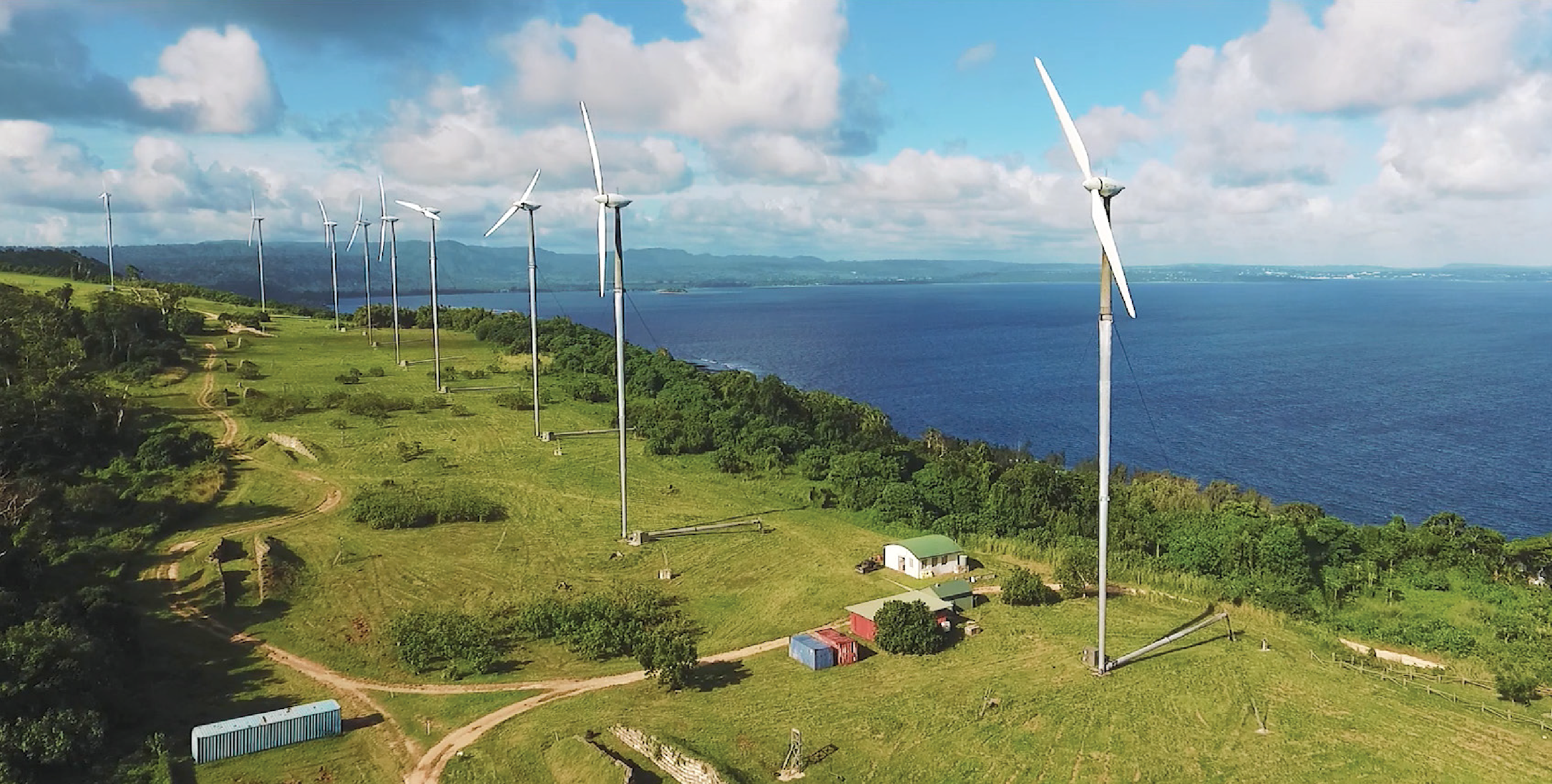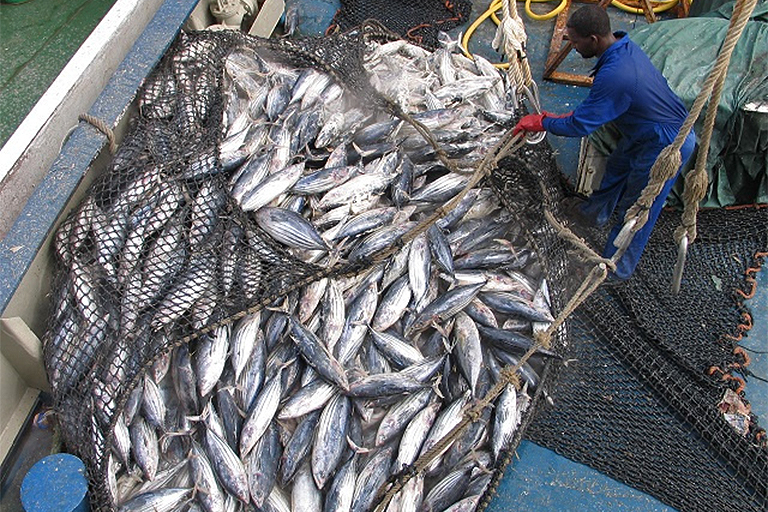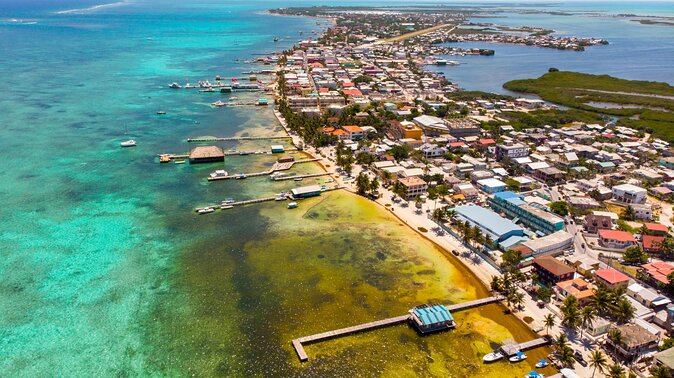
Issue 63 | 07 September 2022
SIDS' youth are not only the leaders of tomorrow – they are actively innovating to confront the challenges of today. The new generation of dynamic leaders in SIDS have proven they have a necessary perspective bridging traditional knowledge systems and modern technologies. Youth are a large contingent of the SIDS community - in the Caribbean, 63% of the population is under 30. Collaboration between SIDS in sharing youth-led innovations is essential for addressing the geographical dispersion and lack of access to youth funding, such as regional networks like the SIDS Youth AIMS Hub that cultivate partnership and coordination mechanisms for youth. Technical capacity-building to support youth innovations is also essential, such as UNDP’s recently launched SIDS Data Platform. In order to amplify their vision, UNDP has launched the SIDS Youth Survey on Digital Futures enabling SIDS' youth to shape their own future in leading digital technologies for transformative development.
Youth voices are key in climate advocacy, as the oceans of the future are theirs to inherit, and will be pivotal in leading the agenda with under three months before the climate negotiations at COP27 in Egypt. SIDS have emerged as leaders at global climate forums, as shown by the recent announcement that former Grenadian Minister Simon Stiell will be the Executive Secretary of the UNFCCC. He will build on the leadership of SIDS who made waves last year at COP26, where Barbados PM Mia Mottley shone in her fearless and moving challenge to global leaders and Tuvalu Minister Kofe gave his unforgettable speech while standing in the water to demonstrate sea level rise.
As the relationship between the oceans and our climate is now well established, SIDS were also strongly committed to conclude an ambitious treaty to protect marine biodiversity in areas beyond national jurisdiction (BBNJ) at the 5th Session of the Intergovernmental Conference (IGC-5). This treaty is important to establish the network of MPAs needed to reach 30 by 30 target. However, despite progress, two weeks of negotiations ended in an impasse that will likely push any agreement into 2023. This is a blow to international marine protection measures, including MPAs, environmental impact assessments, ocean finance, and sharing of marine genetic resources. To highlight these types of innovations in SIDS, this bulletin features examples of SIDS’ leadership across the pillars of the SIDS Offer, including features on Vanuatu’s ambitious climate targets, a digital platform for fisheries in Seychelles, initiatives in innovative finance and digital economy, and other key methods SIDS are accelerating their development.
Image: Mark Okon/Unsplash
Country Corner

Image: The Global Green Growth Institute
Vanuatu commits to 100% renewable electricity generation by 2030
Since the UN climate summit in Glasgow, Vanuatu is one of only 12 countries to have submitted revised NDCs. Its ambitious targets have been praised by regional experts as setting an example for the rest of the world. Tagaloa Cooper-Halo, the director of the climate change resilience program at the Secretariat of the Pacific Regional Environment Programme (SPREP), commended Vanuatu’s “monumental effort by their government and all the stakeholders, because it takes a lot of work and coordination to arrive at that announcement.” Vanuatu is already a carbon-negative country absorbing more emissions than it produces, but has committed to going further, by phasing out fossil fuels entirely to become 100% renewable in its electricity generation by 2030. According to the government, the costs of achieving Vanuatu’s revised commitments are estimated at $1.2bn by 2030, which will require SIDS-SIDS cooperation and innovative finance mechanisms including blended finance approaches and risk-mitigating solutions as well as catalysing private sector investment for infrastructure through green bonds.
Vanuatu, the nation rated by the UN to be the most vulnerable nation to climate risks, is also pushing for a loss-and-damage finance facility to be established to support vulnerable communities. Vanuatu was the first nation to call for climate polluters to pay for climate-related harm 30 years ago, and now climate-related harm will be an important point of discussion at COP27 to be held in Cairo in November of this year. Vanuatu is showing their leadership by pushing for the International Court of Justice (ICJ) to hand down an advisory opinion on climate-related harm. According to the Vanuatu government, more than 80 nations support this pursuit for an advisory opinion from the ICJ ahead of a vote at the UN General Assembly. An advisory opinion from the ICJ could set a powerful precedent, also tied to the recent UN resolution establishing a healthy and sustainable environment as a human right.
 Image: Joe Laurence/Seychelles News Agency
Image: Joe Laurence/Seychelles News Agency
A new fisheries platform is strengthening Seychelles' Blue Economy
Fisheries are central to the economies of many Small Island Development States. For example, they provide between 30 and 80 per cent of exports in Pacific SIDS. In a previous bulletin, we’ve highlighted how Pacific SIDS have worked together to make the Western and Central Pacific Ocean tuna fishery the only major ocean area where all tuna stocks are harvested at sustainable levels.
Fisheries are also important for SIDS in the Atlantic, Indian Ocean, and South China Seas. For many of them, supporting sustainable fisheries and aquaculture development for food security is crucial for their development. Seychelles’ leadership in the blue economy space is well acknowledged among other coastal nations. In Africa, under the leadership of Seychelles, SIDS of the African Union set up a fisheries platform to address food and nutrition security through fisheries and aquaculture development. As reported by the Seychelles News Agency, Roy Clarisse, Principal Secretary for fisheries in Seychelles, explained that the platform will allow to discuss common strategies and prepare bilateral and regional agreements negotiations.
As reported in our special SIDS bulletin on blue economy, South-South and triangular collaborations are key in building the needed capacity to accelerate the blue economy transformation in SIDS. In addition, the need to integrate processes and share knowledge and experience on best practices among SIDS are needed to facilitate the development of innovative solutions adapted to their needs and opportunities.
 Image: Viator
Image: Viator
Belize is leading the way towards becoming one of the first fully digitized governments in SIDS
Digitization is key to improving the resilience and response to climate change risks and natural disasters, which is thus essential to guard the blue economy through disaster management systems. In the context of e-governance, digital transformation can play a key role in effective governance, participatory decision-making, resource management, proper monitoring, information gathering and distribution, cultivation of innovation ecosystems, and real-time data collection that are essential to enhancing green and ocean economies. In this regard, Belize is transforming its public services and building capacity of all its ministries to fast-forward towards a fully digitized government.
As part of 'Rising up For SIDS', the course on Inclusive Digital Transformation in SIDS provides the foundation for this four-week course, where participants come together in-person and on-line to explore the various pillars and considerations that such a transition requires, while exploring the challenges and the many benefits that the Government of Belize will derive from taking this crucial step. Additionally, the course offers insights into the small steps already taken within ministries and governmental departments to become more efficient and effective in their service delivery. The practical approach to learning allowed the opportunity to use digital tools in order to assess the digital readiness of the public service and to provide recommendations on how to enhance public service delivery through digitalization efforts. Graduates of the course will become digital ambassadors, to champion the government’s move towards a Digital Belize. The whole-of-government implementation is well underway, with the first cohort of 40+ participants graduating in mid-July 2022, the second cohort has been launched on 16 August 2022, and a third and possibly fourth planned for the fourth quarter of this year. By integrating digital transformation planning and learning within their ministries, the course aims to drive rapid improvement in the resilience and efficiency of government services as they shift towards fully digitized government.
Read more here: SIDS Bulletin 63

Please log in or sign up to comment.